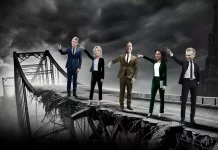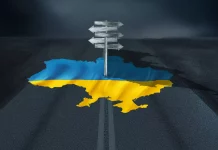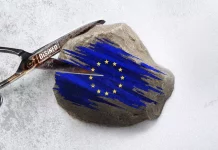
Weekly update on Kremlin disinformation efforts
Our Jakub Janda got interviewed by The Bild about the Russian Federation’s efforts to influence crucial Western elections, including the upcoming ones in Germany. He warns against several channels through which Russia might deploy a high intensity disinformation campaign in order to make Chancellor Angela Merkel lose her office, but also provides several recommendations concerning how to handle the situation. Read the full interview here.
Alex Younger, the head of MI6, seems to share similar concerns. Without explicitly mentioning Russia, he warned against the hybrid warfare and how it can be exploited by hostile states through various means; such as “cyber-attacks, propaganda, or subversion of democratic process.” According to Younger, “the risks at stake are profound and represent a fundamental threat to our sovereignty. They should be a concern to all those who share democratic values.” We could not agree more.
RT is starting a French-language TV channel, after the Russian State Duma approved its funding of 1.22 billion rubles. It might be logical to extend the broadcasting to another world language as popular as French, but there are experts voicing suggesting that the decision might be a geopolitical one; possibly even connected to the potential support to François Fillon in order to help him win the upcoming presidential elections.
In the meantime, EurActiv reports that over 70 % of journalists and technicians in Euronews expressed that they don’t trust the management and adopted a statement saying that Euronews could no longer be seen as independent and balanced. There are various reasons, including an alleged ban to criticize Turkey and Russia’s assertive policy. This is very unfortunate since good, quality independent journalism in Europe is an important step in order to face disinformation campaigns.
The cooperation between NATO and the European Union got a fresh boost after the Ministers of Defense from the Member States agreed on 42 concrete proposals in 7 areas of cooperation, including countering hybrid threats or cyber security. One of the proposals encourages participation in the work to establish the European Centre for Countering Hybrid Threats in 2017. Sharing of critical information and exchanging knowledge of potential hybrid threats is included, as well as cooperation concerning strategic communication, analyzing misinformation, and improving the quality and outreach of positive narrative. You can read the complete set of proposals here.
Euroatlantic experts on disinformation warfare
Fact-checking and public exposure of people deliberately spreading disinformation is important. Ben Nimmo proves it with the example of the latest incident of a fake Twitter account spreading fake information about a shooting in Finland.
How Vladimir Putin uses nationalist and populist movements across Europe to promote Russia as the leading power is in the focus of a shorter piece published by The Economist.
Kremlin Watch Reading Suggestion
The Rise of Fact-checking Sites in Europe; by Lucas Graves and Federica Cherubini, published by the Reuters Institute
To this day, there are more than 35 active sources of political fact-checking ranging from Scandinavia through Central and Western Europe to Mediterranean countries. The majority of the sources focus on claims made by the politicians, however, several of them target news servers as well.
The main difference amongst European countries is the particular type of the dominant fact-checking source. For instance, in Northern and Western Europe the fact-checking process is primarily run by newsrooms in cooperation with independent experts from various think-tanks, whereas fact-checking process in Southern Europe is mainly conducted by NGOs and alternative media outlets. We also cannot omit the different origin of the fact-checkers as we encounter various journalists, political science and economics experts, and various local activists and citizens.
Czech Disinformation Corner
Neo-Nazis and mobsters from Ukraine to the Czech Republic: In relation to the upcoming visa-free travel between the EU member states and Ukraine and Georgia, several pro-Kremlin disinformation servers decided to spread fear of alleged threats connected to it. They warned against the danger of the extension of Ukrainian organized crime to the Czech territory, lowering the cost of labour, and of course the danger of Ukrainian neo-Nazism.
The alleged end of freedom of speech: Last week’s hot topic was the upcoming government meeting concerning the approval of giving more powers to the military intelligence in the field of monitoring the internet communication and the establishment of the unit against disinformation within the Ministry of Interior. The most common opinions mentioned the “re-establishing of censorship.” Among other authors, the MEP from the Communist Party of Bohemia and Moravia contributed with an article about the end of the last free information channel. Speculation appeared about the future extent and possibility of abuse of these policies. According to Aeronet, the Czech Republic is becoming a totalitarian state.
Kremlin Watch is a strategic program of the European Values think-tank, which aims to unravel and confront instruments of Russian hybrid war which is focused against liberal-democratic system. Find out more at www.europeanvalues.net/kremlin





